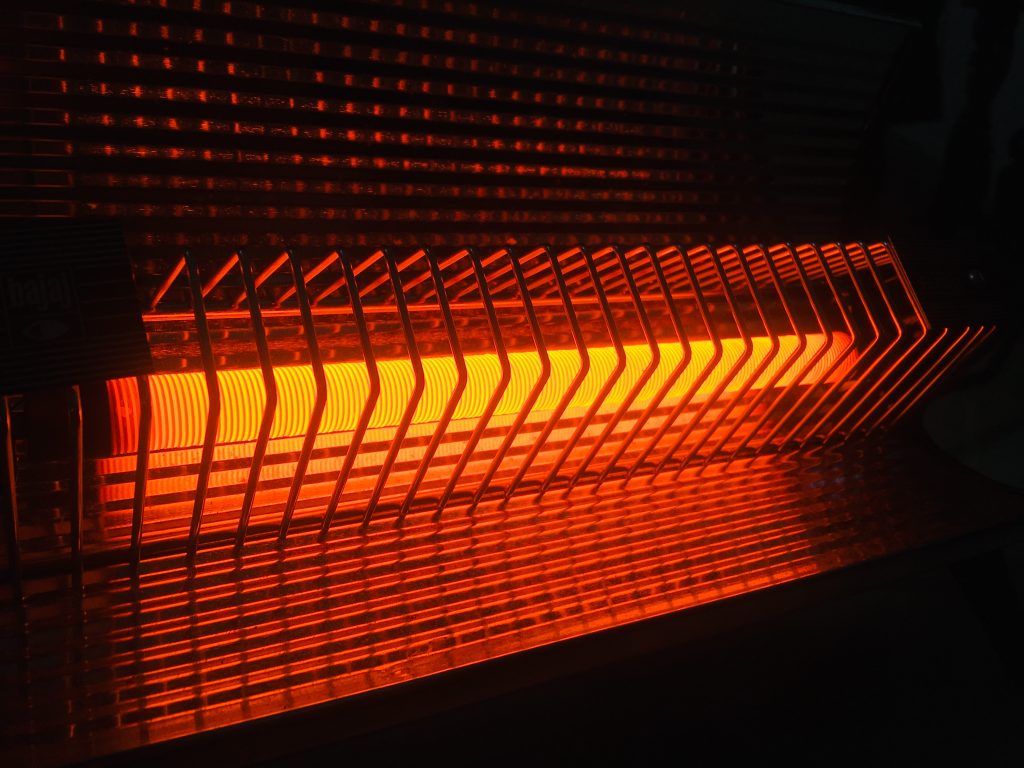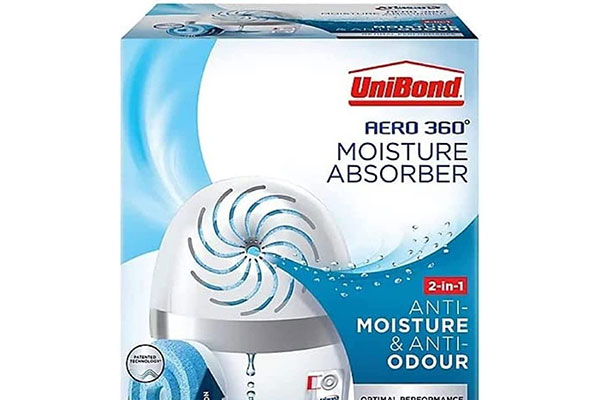I have a Dehumidifier and noticed that it blows out warm air. This got me thinking, can you use a dehumidifier as a heater? In this article, we will explore the question of Dehumidifier vs Heater.
Yes, a dehumidifier can warm up a room, under certain circumstances.
For a dehumidifier to warm up a room it needs to be a high capacity desiccant type. Desiccant dehumidifiers (like this one) blow out warmer air than compressor types because they require a heating element to restore the desiccant material within the device. This causes them to blow out nice toasty air and makes them an ideal candidate for drying laundry or heating a home!
Do Dehumidifiers Make the Room Warmer?
The short answer is yes, the long answer is, sometimes. First, we must address the fact that there are two different types of dehumidifier – compressor, and desiccant. Both types suck air in through the intake and blow it out through an air outlet. The air that comes out of a compressor type dehumidifier is on average 2C warmer than the air that came in. This means that a compressor dehumidifier will warm up the surrounding air slightly, but not enough for it to be really noticeable.
Desiccant dehumidifiers (like Pro Breeze), on the other hand, blow out air that is 10-12C warmer than the air that came in! This makes the desiccant dehumidifier a good choice for warming up a room. Just place it in a chilly hallway or room and it should get warmer as a result. Ok, so we know that only a desiccant dehumidifier can cause a noticeable increase in the warmth of a room, what now?

10L Desiccant Dehumidifier
Timer, Air Filter, Continuous Drainage, Digital Control Panel
Well, it is also worth knowing that a cold room with high humidity will feel colder than it actually is! This means that as well as pumping out warm air, the reduction in humidity will actually make the room feel even warmer. This is a double whammy effect and really makes a desiccant dehumidifier a dark horse when it comes to effective heating appliances. Many desiccant dehumidifiers come with a louvre (outlet) which can be moved. This gives you the opportunity to direct the warm air in whichever direction you want, most radiators do not have this option and it is great for drying laundry.
Which is Better for Damp?
Many people often suggest that you simply crank up the heating if you want to get rid of damp. As it turns out though, this is actually bad advice for a few reasons.
First off, warm air actually “holds” a lot more water than cool air. As the air in a room warms up, evaporation increases and water is much less likely to condense. The result is that when you try to dry out damp using heating alone, you actually just increase the humidity level in the room! This is particularly true when using the heater to dry out damp in winter with the windows closed. This method may work better in summer with open windows but is nowhere near as effective in winter.

EcoAir DD1
- 7.5L per day
- Quiet 34dBA
- Rotary Control
- 6kg
Turning up the heating only works when you are also ventilating the property, otherwise, the humidity level just increases further. This can result in making an environment that is conducive for mould growth and other allergens such as dust mites. Ventilation during the winter months simply isn’t practical. Heating is also expensive so you don’t want it blowing out the window into the cold winter night.
Here is where the desiccant dehumidifier can weigh in. As well as blowing out air few degrees warmer than it went in, the dehumidifier pulls moisture out of the air. This is one of the top ways to get rid of damp because a damp wall will not dry in a humid environment. The dryer than air inside, the quicker any damp object in the room will dry. When this drying effect is used alongside the warm air that is circulated, you have a winning formula for fighting damp.
Dehumidifier vs Heater, Which is Cheaper?
Let’s have a quick look at which one is cheaper to run. Let’s compare this VonHaus Oil Filled Radiator – 2500W/2.5KW (details) with a popular desiccant dehumidifier, in this case, the Pro Breeze® 10L Desiccant Dehumidifier . The radiator uses 2500W which means it will cost roughly 46.35p an hour to run. The desiccant dehumidifier uses 680 Watts which amounts to 12.61p an hour ( *Calculated using the UK Average rate of 18.54p/kWh (December 2019 tariff)

ANSIO 12L/Day Dehumidifier
Moisture Remover with Continuous Drainage, Laundry Drying, Sleep Mode, Child-lock, 24 Hour Timer, Auto-Off, Humidity Display

This makes the dehumidifier the clear winner when it energy costs. This doesn’t mean the dehumidifier is always the best option but it sure makes it a viable option for warming up a room. The dehumidifier also has the added bonus of expelling heat via a fan which will make you feel the warmth quicker than a radiator.
The trouble with heaters such as convection heaters is that they take a long time to feel the benefits, especially if you have high ceilings . . .
Also, as we previously mentioned, the dehumidifier causes the humidity to drop, which can make a room feel warmer. The dehumidifier will make a cold and damp room feel SIGNIFICANTLY warmer than heating alone.
When is a Dehumidifier Better than a Heater?
Ok, so we have come to the conclusion that a dehumidifier can be used to heat a room in certain circumstances. When exactly is a dehumidifier better than a heater?
A dehumidifier will definitely be better than a heater in a humid room. This is because the dehumidifier will dry out the air which makes the room feel warmer whilst pumping out warm air. You can tell if a cold room is too humid because it will feel much colder than it actually is. A heater in a damp room might make you feel a bit warmer but it will not dry out damp and the room will remain humid.

Duronic Dehumidifier DH20
- 20L per day
- Tank: 4L
- Laundry Dryer
A dehumidifier is much better for drying laundry than a heater. We covered this extensively in our article “can a dehumidifier dry clothes?”. They are actually so good at drying clothes that we are confident that a dehumidifier can be a good alternative to a tumble dryer.
The dehumidifier is also a better investment than a heater if you care about energy usage. Most portable heaters are generally 2000+ watts and will not solve any significant damp issues in the winter without ventilation. On the other hand, a desiccant dehumidifier is usually significantly cheaper to run and can dry out damp without any ventilation.
The heater may be better than the dehumidifier for rooms that are always at an ideal humidity level. This usually only applies to well-insulated, newer housing. Many older houses have poor insulation which makes the walls and sometimes windows very cold. Cold walls and warm air inside are a recipe for condensation which can cause damp.
Conclusion
Usually, if you were cold or had damp issues, a heater would jump to mind as the obvious solution. Upon closer inspection, however, this is not always the case. We have covered in good detail how a dehumidifier can actually be a better option for warming up a room than a heater. It looks like the verdict is in for the dehumidifier vs heater question, and the dehumidifier is the winner in many cases. Bear in mind that if you are looking for a quick heating solution dehumidifier may not be good enough. Cheap electric heater would warm up the room much faster (especially if it is the main heating source).
If you are wondering whether you should get a dehumidifier after reading this, then we can help. We have performed extensive reviews of two popular dehumidifier brands, Pro Breeze and Meaco. We hope this article has helped you make a more informed buying decision for warming up a room. Please feel free to comment or contact us if you would like any further information, thanks for reading.
Last update on 2025-02-28 / Affiliate links / Images from Amazon Product Advertising API








